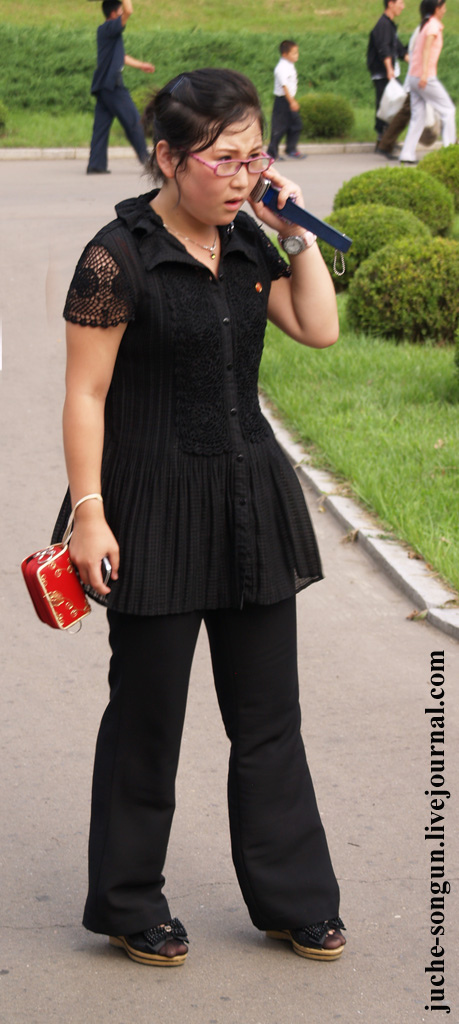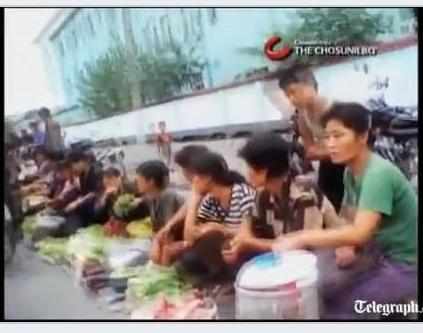North Korean leader Kim Jong Il has found an unlikely ally to help raise cash for his impoverished regime: The Dude, the pot-smoking underachiever played by Jeff Bridges in the movie “The Big Lebowski.”
Programmers from North Korea’s General Federation of Science and Technology developed a 2007 mobile-phone bowling game based on the 1998 film, as well as “Men in Black: Alien Assault,” according to two executives at Nosotek Joint Venture Company, which markets software from North Korea for foreign clients. Both games were published by a unit of News Corp., the New York-based media company, a spokeswoman for the unit said.
They represent a growing software industry championed by Kim that is boosting the economy of one of the poorest countries in the world and raising the technological skills of workers. Contracting with North Korean companies is legal under United Nations sanctions unless they are linked to the arms trade.
“From the government’s point of view, foreign currency is the main reason to nurture and support these activities,” said Andrei Lankov, an academic specializing in North Korea at Seoul- based Kookmin University. “These activities help to fund the regime, but at the same time they bring knowledge of the outside world to people who could effect change.”
The technological education of graduates from North Korean universities has “become significantly better,” Volker Eloesser, a founder of Pyongyang-based Nosotek, said in an e- mail. Companies with “hundreds or even thousands of staff each” operate in North Korea, he said.
Double-Edged Sword
Better trained programmers may also bolster the regime’s cyberwarfare capabilities, said Kim Heung Kwang, who taught computer science at universities in the north for 19 years before defecting to South Korea in 2004. South Korea’s presidential office said July 28 the nation had received intelligence that North Korea may plan an Internet-based attack.
Won Sei Hoon, director of South Korea’s National Intelligence Service, told lawmakers last October that North Korea’s postal ministry was responsible for cyber attacks in July 2009 on dozens of websites in South Korea and the U.S.
President Barack Obama widened U.S. financial sanctions on North Korea on Aug. 30, freezing assets of North Korean officials, companies and government agencies suspected of “illicit and deceptive activities” that support the regime’s weapons industry.
Seeking Capability
“Any sort of transaction that gives cash to the North Korean government works against U.S. policy,” said James Lewis, a senior fellow at the Center for Strategic and International Studies, a Washington-based policy group. “The coding skills people would acquire in outsourcing activities could easily strengthen cyberwar cyber-espionage capabilities. Mobile devices are the new frontier of hacking.”
North Korea’s information technology push began in the 1980s as the government sought to bolster the faltering economy, said defector Kim. That drive also led to the creation of a cyber-military unit in the late 1990s, he said. He runs North Korea Intellectuals Solidarity, a group composed of defectors who have graduated from North Korean universities.
Nosotek’s Eloesser disputed any connection between programming for games and cyber-espionage.
“Who could train them, as neither me nor the Chinese engineers who are cooperating with the Koreans have those skills ourselves?” he asked in an e-mail. “Training them to do games can’t bring any harm.”
Joint Venture
Nosotek is a joint venture between the science and technology federation and foreign investors, company vice president Ju Jong Chol said in an e-mail. He said federation members developed both “Big Lebowski Bowling,” set in a rendition of the bowling alley where The Dude spent much of the movie drinking White Russians, and “Men in Black,” in which players battle invading aliens. Eloesser confirmed his comments.
Both games were published by Ojom GmbH, a unit of a company called Jamba that was bought by News Corp. and later renamed Fox Mobile, according to Fox Mobile spokeswoman Juliane Walther in Berlin. They came out after News Corp. took a controlling interest in Jamba in January 2007 and before it bought the remainder in October 2008. Ojom was eliminated in a May 2008 reorganization, Walther said.
When asked whether Fox Mobile distributes games developed in North Korea, Walther said that the unit “has extensive partnerships with content producers in all areas, with operators, and with the biggest media companies worldwide, including various Asian companies.”
No More Details
She said the company could not provide more details on where partners are based or confirm “if and how” North Korean companies were involved in development for Ojom. Dan Berger, a News Corp. spokesman in Los Angeles, declined to comment further. News Corp. is controlled by Chairman and Chief Executive Officer Rupert Murdoch, 79.
Eloesser founded Elocom Mobile Entertainment GmbH in 2003, which later became a subsidiary of Ojom. He said he first visited North Korea in 2005 and helped found Nosotek in 2007.
Nosotek offers clients billing through either a Hong Kong or Chinese company, according to its website, which promises “skills, secrecy, dedication.”
Such practices allow the funds to flow to North Korea, said Paul Tjia, director of Rotterdam, Netherlands-based GPI Consultancy, which helps companies outsource overseas, including to North Korea. Other companies contract with Chinese firms that then subcontract to North Korean companies, he said.
It is “impossible to estimate” how much revenue North Korea earns through software development, he said.
Nosotek’s wares are “of similar good quality to those from other companies in Europe or America,” according to Marc Busse, digital distribution manager at Potsdam, Germany-based Exozet Games GmbH, which has distributed games for Nosotek.
Foreign companies that are reluctant to do business in North Korea need to understand that investment there can help the country modernize and reduce its isolation, Tjia said.
“Most companies are still reluctant, which we think is unfortunate,” he said. North Koreans “need investment, like China in the 1970s.”


